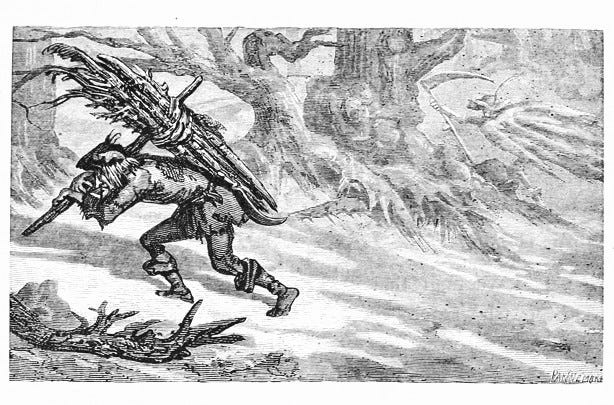Yes, there’s a formula for success.
BY CHRIS DANILO — First appeared on my personal blog
BY CHRIS DANILO — First appeared on my personal blog
You’ll be surprised at how simple it is.
I quit my job managing a software company.
I was bright eyed and confident that I’d have two profit generating businesses within a few months’ time.
Looking back after 1 year, it’s easy to see how ridiculous this was.
I’m smart, but starting a business isn’t about being smart.
Starting a business, or ANY project is about hustling, surviving the grind, and committing so hard that no matter what happens, you’ll never give up.
Before we jump right into the formula, you’re going to need a little background information.
The Hustle
The Hustle is the amount of effort you’re putting into your projects. It’s NOT the same as impact, productivity, or progress.
The Hustle is simply the amount of fuel you’re burning.
Remember that The Hustle is the only thing in this formula of which you’re in control.
It’s not over until you quit.
The Grind
The Grind is a combination of social, environmental, and economic pressure.
YOU exist in the space between these forces and the ground. The Grind is the cumulative stress and burden.

The bigger your dreams, the more incapacitatingly scary they seem. This is NORMAL.
The only things I’ve found to help keep me resilient in the face of The Grind are:
Exercise. (A strong and clean body facilitates the biology of a strong and clean mind.)
Having friends who are also facing The Grind (we call them accountabili-buddies.)
Checking in with mentors on a frequent and regular cycle
Meditation, every day.
Journaling. (Not bitching. Writing down things that sucked, only before things that I’ve learned from them.)
The Dip
Coined by Seth Godin in his iconic book, the dip is the slump in visible progress that occurs in any project you start. Exercising at the gym, learning to ‘walk the dog’ with a yo-yo, learning to cook the perfect egg — each of these projects have a learning curve. That learning curve, in combination with the darkness of not knowing when the light bulb is finally going to flick on is the Dip.
Learning how to ‘walk the dog’ with a yo-yo might have a 45 min dip that is slightly frustrating. Starting a business might have a 5-year dip that puts an unforeseen strain on your social relationships.
You never really know the length of the dip. The only thing you can do to prepare yourself for this is to look at ‘case study’ projects similar to yours and to honestly ask yourself why you want to start in the first place.
You could be 150% sure that you want to do this, but I promise, you’re going to question your motivation.
Take a weekend and read Seth Godin’s book “The Dip” to determine if and when quitting is a good idea.
Once you’ve figured this out: commit and persevere.
A simple formula
In this formula, The Hustle is a powerful multiplier, but it can be easily wasted. It can be wasted on poor opportunity, a lack of opportunity, or a diffusion of focus.
You can hustle all you want, but if you’re just being active and not being PRODUCTIVE, you’re never going to move forward on anything.
This means that your hustle loses its effective impact if the number of projects you’re working on increases.
More stuff to do = more hustle required to execute.
In this example, please note that I’m assuming all projects are created equal and will require the same amount of time to execute at the same quality level.
The Grind also interacts with the hustle here. The tougher The Grind, the more it divides The Hustle.
Take the sum of this little fraction and multiply by the sum of talent and opportunity and you’ll have your numerator. By itself, this numerator might be called Productivity.
Last, look at the massive change in the dip to determine your success.
If you’re starting a project with a long dip, like: ending world hunger, then it might take some time before you have success. The longer you persevere through the dip, the higher your chances are of success.
Key takeaways from this formula
If your hustle is 0, your chance of success is 0.
If your grind is higher, your chance of success is lower.
If your # of projects is 0, your chance of success is 0.
The dip is correlated with (and parallel to) your chances of success.
If your talent is 0 and you have no current opportunities, you can still have a positive chance of success.
You might also like these posts:
The 4 Reasons Your Last Relationship Failed
24 Life Changing Productivity Tools
The Only Thing You Need To Prep For A Job Interview
Thanks for reading!
If you got some value from this, RECOMMEND this post and spread the love to someone who needs to see it.








